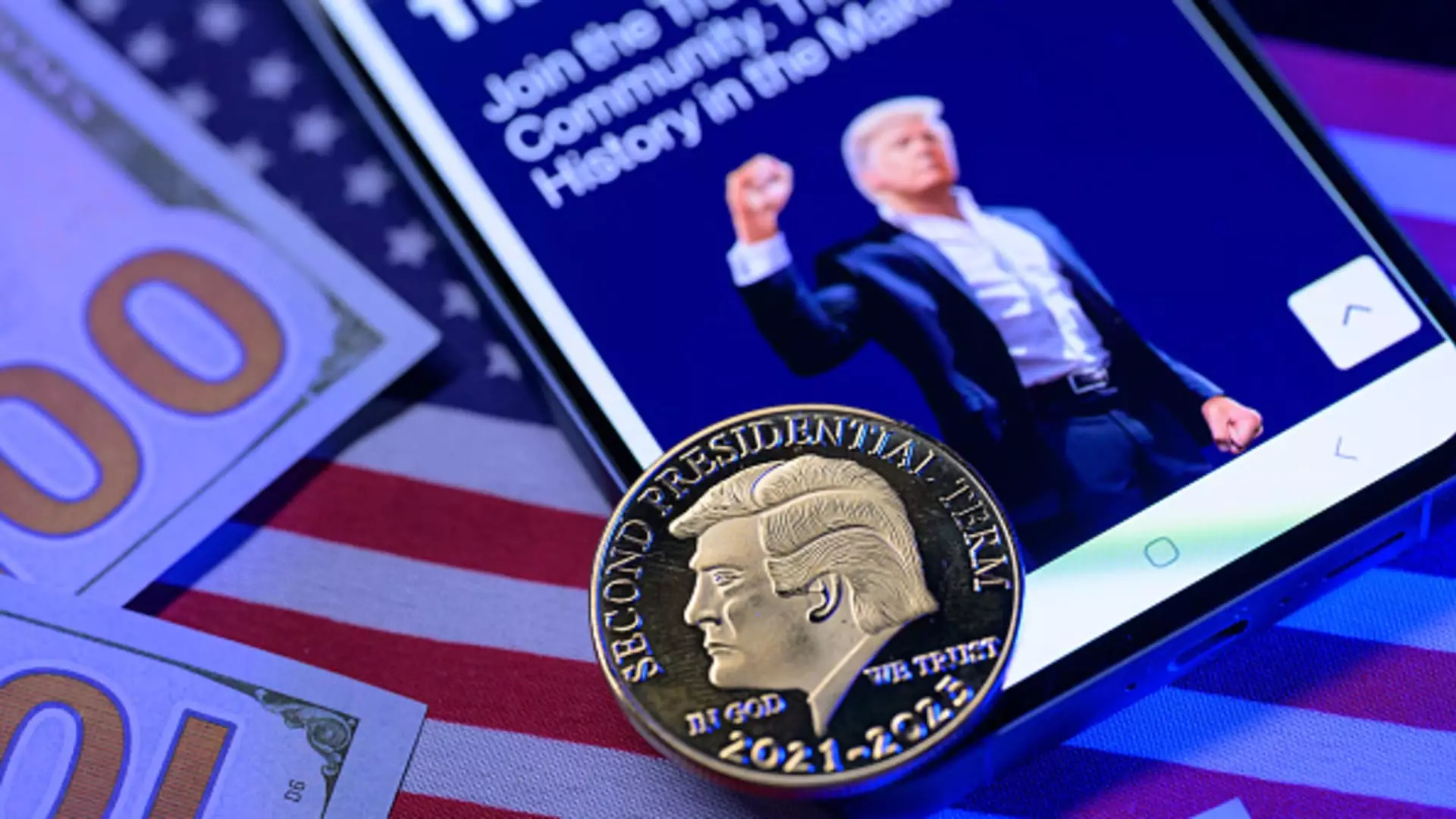As the countdown begins for an exclusive dinner with former President Donald Trump, attended by the top holders of his controversial meme coin, $TRUMP, intrigue surrounds the identities of these crypto elites. Scheduled for May 22 at one of Trump’s golf clubs in Virginia, this event signifies not only an intersection of politics and cryptocurrency but also raises eyebrows about the anonymity of the wallets involved. The majority of these wallets are cloaked in pseudonymity, leaving the public to ponder, who are the individuals wielding such financial power?
Blockchain analytics tops the investigation into these holders, revealing a clearer picture of the $TRUMP landscape. An analysis conducted by Inca Digital, referenced by various media outlets, indicates that a significant number of these wallets are tied to international exchanges such as Binance. This detail raises immediate flags about the citizenship of these individuals, hinting that many may not be U.S. citizens, thus creating a foreign influence angle that is hard to ignore. The intersection of cryptocurrency and political power illustrates a new era of lobbying, where dollars – now in the form of digital tokens – blur the lines of sovereignty and influence.
The Wall Street Journal Meets Wall Street: Who Benefits?
The rollercoaster ride of the $TRUMP token provides insights into the volatile nature of crypto assets. A staggering finding from Inca Digital illustrates a dichotomy: 560,376 wallets have reported impressive cumulative gains of $5.2 billion, while a juxtaposed 592,962 wallets have experienced collective losses of $3.9 billion. This dynamic creates a scenario that is almost poetic in its distribution of wealth – the early adopters celebrate their fortunes while the latecomers face significant losses.
Take for example Justin Sun, a well-known figure in the crypto realm who reportedly splurged $75 million on the $TRUMP token. His wallet reveals an impressive $18 million worth of $TRUMP at the peak of the token’s excitement surrounding the dinner. This has drawn both admiration and skepticism; are transactions like his ushering in a legitimate interest in Trump-related ventures, or merely speculative gambling on a political figure’s next move?
Other notable participants in this intrigue include MemeCore, a Singapore-based crypto network that invested $18 million to secure their place at the exclusive table. Meanwhile, a representative from the Australian cryptocurrency scene also joins the ranks. These ventures illustrate an emerging trend within the digital economy where political figures and their associated tokens can mobilize capital on a global scale, leading us into uncharted economic territories.
Regulatory Red Flags and Political Influences
As the world watches, US Senators are raising alarms concerning the political ramifications of such capital infusion into a former president’s financial ecosystem. Senator Richard Blumenthal has voiced concerns that the Trump family’s crypto activities might offer a backdoor for foreign entities to penetrate U.S. political frameworks, potentially manipulating policies to serve exclusive interests. He suggests the need for robust regulations regarding digital currencies, especially when intertwined with political figures.
Adding to the intrigue is the move by Freight Technologies, a Nasdaq-listed logistics firm, which invested $2 million in $TRUMP tokens with a declared intent to sway U.S.-Mexico trade policy. Failure to make the cutoff for dinner suggests that not every corporate player has unfettered influence, although the intention to engage politically through financial backing is clear. It raises questions around the ethical dimensions of corporate influence in governmental affairs, compounded by the anonymity that blockchain technology provides.
The Future of $TRUMP: From Hype to Reality
Kicking off in early January, the $TRUMP token initially skyrocketed to a market cap of $15 billion, fueled largely by promotional posts from Trump himself, who declared with enthusiasm that it was “time to celebrate everything we stand for.” However, like many meteoric rises, it faced a stony drop, losing most of its value shortly thereafter. Although there was a brief resurgence, any genuine backing remains questionable. It appears that much of this hype may be bolstered by the novelty of associating a commodity with a polarizing political figure rather than substantive financial mechanisms.
The evolving situation regarding the $TRUMP token, particularly in relation to its dinner, establishes a unique case study on the convergence of politics and the digital currency revolution. As these realms intertwine, they may reshape not only the value of $TRUMP but the broader understanding of what it means to marry political aspirations with speculative financial instruments. Future events will undeniably illuminate whether this cocktail of nostalgia, celebrity, and cryptocurrency will thrive or wither in the growing regulatory climate of the U.S.

